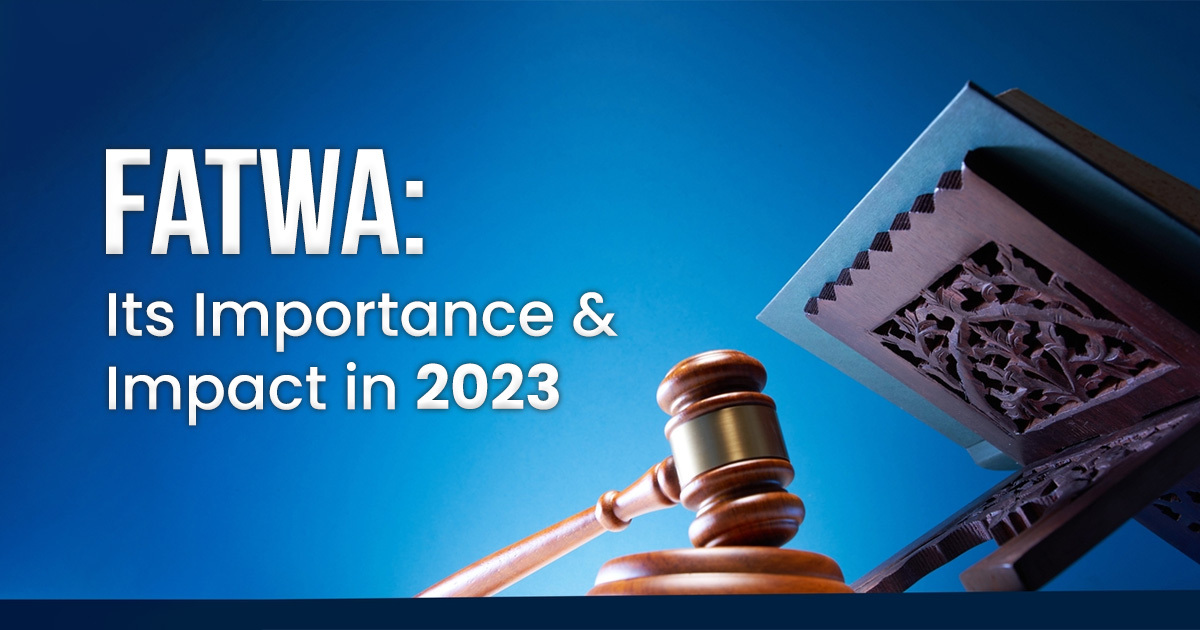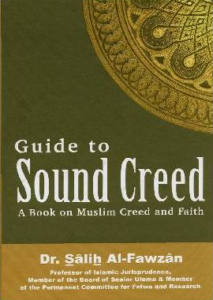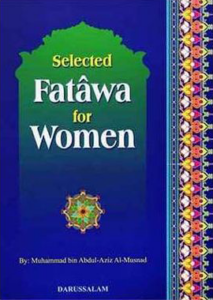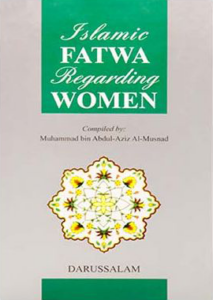Today, in 2024, Fatwa’s role isn’t just religious, it influences our lives daily. This blog by Darussalam untangles Fatwa’s tricky aspects, answering your questions about its importance and influence.
Looking to understand its part in personal decisions? Wondering about its effect on societal norms? Eager to examine the disputes it stirs? Let us explore the unique areas molded by Fatwas in our current age. Additionally, for more concerns, you can refer to our Book Islamic Fatwa 8 Volume.
What is Fatwa?
It refers to a legal declaration made by an authorized expert or Mutfi in Islamic Law. This acts as a guideline for Muslims in interpreting different concepts of religion into different aspects of daily lives.
In essence, a Fatwa is like a directional guide that enables people to find their way around the intricate labyrinths presented by Islamic regulations on various aspects of life.
- Dietary Guidelines: A Fatwa might outline what foods are permissible or forbidden.
- Marriage Advice: Scholars may guide on marriage-related issues.
- Financial Transactions: Fatwas can offer insights into Islamic principles regarding money matters.
- Social Ethics: They might address ethical behavior and interpersonal relations in the community.
The Authority Behind Fatwa
A. Religious scholars and their role
Muftis are important among Islamic scholars, who issue fatwas. The scholars are extensively educated on the religion having earned the knowledge for interpreting the true meaning of Islamic teachings. They derive this authority from a thorough comprehension of the Quran, Hadith (the words of the prophet Mohammed), and Sharia law, which is how they guide the community towards righteous belief and behavior.
B. Sharia law and its influence
Fatwas draw their authority from Sharia law. Sharia is a set of rules that derive from the Quran and Hadith as a guiding principle in Islamic societies by giving them an ethical and legal framework. Unlike the others, the fatwas comply with the principle of Sharia and provide the necessary guidance, which is not contrary to Islamic fundamentals. Sharia informs on the development of Fatwas, thus making their issuance appropriate, relevant, and credible by being informed.
C. Fatwa issuance process
Issuing a Fatwa requires critical thought and academic research. Mostly, it commences when an individual consults Muftis on a single issue. In his research work based on the Qur’an and Hadith, the Mufti searches into the matter considering its implications in Islam. The Mufti involves consultation with other scholars before issuing a Fatwa after proper understanding. This would entail using modern methods like the Internet in current days. Accordingly, they might be accessed by more people as compared to traditional means.
Types of Fatwas
A. Legal Fatwas
1. Marriage and Divorce
Do you ever wonder how Islam views marriage and divorce? In addition to these, legal Fatwas deal with marital responsibility, the allowed divorces, and the general code of ethics while in marriage are also addressed by Fatwas.
2. Financial transactions
The principles of Islam guide your financial choices as well!! There are legal fatwas that are linked with varieties of financial transactions taking place involving deals, investment, and even management of assets.
3. Dietary laws
These fatwas discuss dietary aspects like what is on your plate and how you got or earned it. These define the permissible and the forbidden food so that you guide your culinary path based on your religious faith.
B. Social Fatwas
1. Ethical guidelines
Have you ever thought about where your actions point in terms of morality? Through social fatwas, there are ethics, on how to be good to yourself and others as well as finding what is right in a particular society.
2. Behavioral standards
First, social harmony begins with individual behavior. These fatwas serve as guidance for Muslims on the right way of behaving when they are in different positions. It leads to the creation of a respectful and caring society.
3. Interpersonal relations
Having social fatwas contributes to the canvas of building strong relationships – this is an art in itself. Their advice to people is based on how they should behave towards their relatives, acquaintances as well as the larger society at large and that they need to be loving, caring, and willing to listen.
The Impact of Fatwas in 2023
A. Social and cultural implications
1. Influence on individual behavior
The consequences of social fatwas are far-reaching and directly affect one’s choices and conduct. They guide people’s behaviors on ethics and social relations in turn shaping character for their community of people with virtues.
2. Impact on community practices
The social fatwas go further than an individual, affecting shared practices and values in communities and societies. These Fatwas are relevant even from their celebrations to their mournings as they offer common guidelines for ethical aspects of many issues that pertain to the community actions and events.
3. Integration of Fatwas in modern society
The present has been embraced by fatwas which have managed to fit in society’s dynamics. Integration of fatwas through modern online platforms and developing communication avenues shows the ability of Islamic laws to keep up with modern life and reflect current requirements in the society of the 21st century.
B. Political Ramifications
1. Government and legal recognition
In some instances, it also affects politics and issues of governance. The complex interaction of Fatwas with policymaking in governments is noteworthy and deserves consideration.
2. Intersection of religious and state laws
With the diverse terrain in political systems, intersections between religious and statute laws are made manifest via Fatwas. It reflects some intricate balancing act between the sacred and the secular.
3. Global implications of Fatwas
Fatwa transcends borders. Modern communications make remote religious scholars’ word reach out as far as an opinion about diplomatic issues or a dispute concerning human rights.
Controversies Surrounding Fatwas
A. Criticisms and debates
Unfortunately, fatwas, though offering guidance, are subjected to criticism and controversies. This is an argument in which some posit that these tools can be abused and may cause controversies in societies and communities. There have been criticisms ranging from the power to give scholars, down to possible infringement of personal liberties.
B. Interpretational differences
The crucial aspect of a fatwa is interpretation which often leads to disagreements. Depending on a given scholar’s view, Fatwas in some instances can be contrary. The existence of these different interpretations shows that Muslim law is always a fluid body of rules and not stagnant.
C. Balancing tradition with modernity
One issue that lies at the heart of these problems involves striking a balance between Islam’s established doctrines and the requirements of contemporary life. With advancing social norms, there are concerns regarding the flexibility of Fatwas. This is a major dilemma of balancing how best Fatwas can be relevant within the 21st Century, creating questions of their application as well.
The Role of Technology in Disseminating Fatwas
A. Online Fatwa platforms
The world in the digital age allows guidance seekers to look into online Fatwa platforms. These are the platforms through which one links with scholars of high caliber whose services one can use to get the needed responses. Virtual space gives a wider coverage, thus making the provision of counseling services accessible to the whole world.
B. Social media’s impact
Social media increases the coverage of the Fatwas which consequently accelerates their spread across religious information channels. Though this increases its usability, there exist issues like its susceptibility towards misrepresentation or even quarrels. Social media turns into an educational instrument as well as a platform where interpretations can be amplified to influence the masses.
C. Challenges and opportunities
Technological application in the circulation of fatwa presents a challenge and an opportunity. Though online channels improve reach, they also bring issues with the validity of content and the chance of deception. Finding the proper balance between accepting technology, and sustaining the authenticity of Fatwas is an issue that faces them daily; however, it should be a source of inspiration to find new ways to reach Muslims worldwide.
Conclusion
In conclusion, Fatwa has a great impact on society, and many aspects affect it. We acknowledge it as a process that requires continued engagement with changing religious rulings and their meaning. Fatwas are an intrinsic part of a world, where tradition interacts with modernity. Their impact goes deep into discussion on the nature of contemporary society.
FAQs About Fatwa
Are Fatwas legally binding?
Fatwas only have a moral impact and cannot be enforced by law. Regional interpretations and government recognitions determine their influence. People may adopt Fatwas of their own free will, however, legal systems may or may not be applied.
How do online Fatwa platforms work?
There is an online Fatwa platform that links people with skilled scholars and muftis. This is an online forum where users post questions which are then answered by Muslim scholars by their teaching. They employ technology to optimize convenience and facilitate inquiries regarding the service offered.
Can Fatwas change over time?
Yes, Fatwas can evolve. Scholarship is constantly reinterpreting the basic premises of Islam for modern-day matters. Though the essential concepts continue, the usage may modify depending on the developing features of a community.
How do Fatwas address modern ethical dilemmas?
This is because Fatwas moved through modern ethical problems using the principles of traditional Islam and adjusting them to contemporary circumstances. The scholars are therefore encouraged to engage in thorough examination for advice that is congruent to Islamic ethics while considering the multifaceted nature of modern-day living.
Are there differing Fatwas on the same issue?
Yes, interpretational differences among scholars may lead to varying Fatwas on the same issue. This diversity reflects the dynamic nature of Islamic jurisprudence and the ongoing scholarly dialogue. Seekers are encouraged to consult with scholars to gain a comprehensive understanding.













